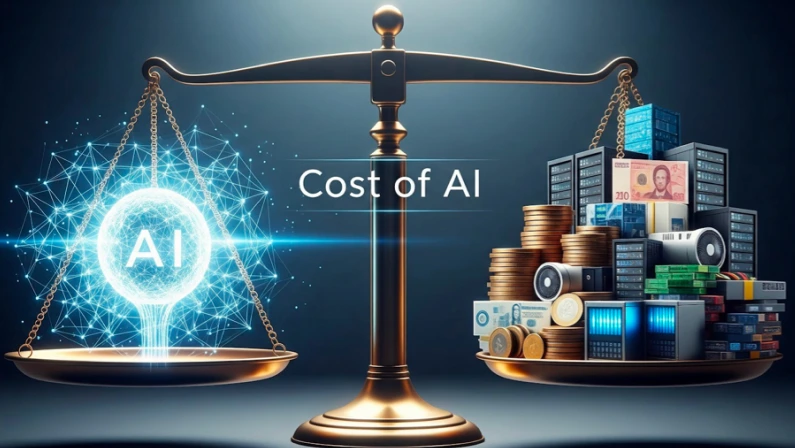.png)
Learning about Customer Relationship Management (CRM) within the service sector is something that is exciting yet daunting at the same time, most especially for beginners in this approach.
Whether you're a small business or a large corporation, implementing CRM strategies effectively can enhance customer satisfaction, driving revenue, and fostering long-term relationships.
In this article, let's find out the essential steps to kickstart your customer relationship management in service industry and how it can guide you through the process from planning to execution.
What is CRM in the service industry?

In the service industry, CRM refers to a strategic approach aimed at managing interactions with current and potential customers. It involves utilizing various tools, technologies, and processes to streamline customer interactions, enhance customer satisfaction, and ultimately drive business growth.
In essence, CRM in the service sector revolves around understanding customer needs, preferences, and behaviors to tailor services and experiences accordingly.
By centralizing customer data and leveraging analytics, service-oriented businesses can cultivate stronger relationships, identify opportunities for upselling or cross-selling, and provide personalized support, thereby solidifying their competitive edge in the market.
How Does CRM For Service Industry Works?
CRM for the service industry operates by centralizing customer data from various touchpoints and channels, including inquiries, purchases, interactions, and feedback.
This consolidated information forms a comprehensive customer profile, allowing businesses to gain insights into individual preferences, behaviors, and needs.
Moreover, CRM systems often incorporate analytics capabilities, enabling businesses to analyze trends, identify patterns, and forecast customer behavior.
By leveraging these insights, service-oriented companies can tailor their offerings, anticipate customer needs, and proactively address issues, ultimately enhancing customer satisfaction and fostering long-term loyalty.
What are the Different Types of CRM In the Service Sector?
To begin with, you must know first that there are different types of CRM in the service sector.

Here are four key types of CRM commonly employed in the service sector:
Sales Force Automation (SFA)
SFA focuses on automating and optimizing sales activities, such as lead management, opportunity tracking, and sales forecasting. By automating routine tasks and providing sales teams with valuable insights, SFA systems enable businesses to streamline their sales processes, improve efficiency, and drive revenue growth.
Customer Relationship Management (CRM)
This type of customer relationship management in the service sector is the overarching system that manages all customer interactions across various touchpoints, including marketing, sales, and customer service.
CRM systems centralize customer data, facilitate communication, and enable personalized interactions, fostering stronger relationships and enhancing customer loyalty.
Service Management Systems (SMS)
SMS is specifically tailored for service-oriented businesses, such as restaurants, hotels, and healthcare providers. These systems focus on managing service requests, scheduling appointments, and tracking service delivery.
By optimizing service operations and ensuring timely responses, SMS solutions help organizations deliver exceptional service experiences to their customers.
Business Intelligence (BI)
BI tools and systems complement CRM by providing advanced analytics and reporting capabilities. These solutions analyze customer data, identify trends, and generate actionable insights to support data-driven decision-making.
By leveraging BI, CRM service industry businesses can gain a deeper understanding of customer behavior, market dynamics, and performance metrics, enabling them to refine their strategies and stay ahead of the competition.
What are the key features of CRM for the Service Industry?
These CRM features play a vital role in streamlining operations, enhancing customer interactions, and ultimately driving business growth
Centralized Database
A centralized database serves as the cornerstone of CRM service for industry, consolidating customer information from various sources into a single, easily accessible platform.
By centralizing data on customer preferences, purchase history, and interactions, businesses can gain a comprehensive view of their customers, enabling personalized service delivery and targeted marketing efforts.
Service Case Management
Service case management functionality enables service providers to efficiently manage customer inquiries, issues, and requests throughout their lifecycle.
This feature facilitates the tracking of service requests, assignment of tasks, and resolution of issues in a timely manner, ensuring exceptional customer service experiences and fostering customer satisfaction and loyalty.
Workflow Automation
CRM systems in the service industry often incorporate workflow automation capabilities to streamline repetitive tasks and processes.
By automating routine activities such as email notifications, task assignments, and follow-up reminders, businesses can optimize operational efficiency, reduce manual errors, and free up resources to focus on delivering high-quality services.
Multi-Channel Support
With the proliferation of communication channels, including phone, email, social media, and live chat, CRM systems must offer multi-channel support to effectively manage customer interactions across various touchpoints. This feature enables businesses to maintain consistent communication with customers, regardless of the channel they choose, ensuring a seamless and cohesive service experience.
Appointment and Schedule Management
Appointment and schedule management functionality empowers service providers to efficiently organize and manage appointments, bookings, and service schedules. By providing tools for scheduling appointments, sending reminders, and managing availability, CRM systems help businesses optimize resource allocation, minimize scheduling conflicts, and enhance customer satisfaction by ensuring timely service delivery.
What are the benefits of using CRM for the Service Industry?
In the service industry, there are many benefits of CRM in the service sector, empowering businesses to deliver exceptional service experiences and drive growth.
Customized Experience
CRM enables service providers to personalize interactions and tailor services according to individual customer preferences and needs. By leveraging customer data and insights, businesses can offer customized solutions, recommendations, and promotions, enhancing customer satisfaction and fostering long-term loyalty.
Improved Customer Service
CRM systems streamline customer service processes, enabling businesses to respond promptly to inquiries, resolve issues efficiently, and provide consistent support across various channels. By centralizing customer information and service history, businesses can deliver personalized assistance, anticipate customer needs, and exceed expectations, thereby enhancing overall customer satisfaction and loyalty.
Optimized Sales Strategy
CRM for service based business equips sales teams with valuable insights and tools to effectively manage leads, track opportunities, and nurture relationships throughout the sales cycle. By analyzing customer data and sales performance metrics, businesses can identify trends, prioritize leads, and tailor their sales strategies to maximize conversions and revenue generation.
Central Database System
CRM for service based business serves as a centralized repository for customer data, storing information on interactions, transactions, preferences, and feedback in a structured and accessible manner. This central database system enables businesses to gain a comprehensive view of their customers, facilitating informed decision-making, targeted marketing campaigns, and strategic planning initiatives.
Optimized Turn Around Time (TAT)
With CRM, service providers can streamline processes, automate routine tasks, and optimize workflows to reduce turnaround time and enhance operational efficiency. By automating service requests, scheduling appointments, and assigning tasks, businesses can expedite service delivery, minimize delays, and ensure timely responses to customer inquiries and requests, thereby improving overall service quality and satisfaction
What are the disadvantages of using CRM for the Service Industry?

In the service industry, CRM for services offer numerous benefits, they also present certain drawbacks that businesses must consider.
Let's explore the disadvantages of using CRM in the service sector:
High Initial Costs
Implementing the best CRM for service based business often involves significant upfront investment in software licenses, customization, training, and infrastructure. For small and medium-sized businesses, these initial costs can be prohibitive, posing financial challenges and potentially delaying or limiting the adoption of CRM solutions.
Complexity
CRM for service business can be complex and require time and resources to implement and integrate with existing processes and systems. Managing complex CRM configurations, workflows, and integrations may require specialized expertise, leading to operational challenges and potential inefficiencies, particularly for businesses with limited technical capabilities or resources.
Data Privacy
Storing and managing customer data within CRM systems raise concerns about data privacy and security. Businesses must adhere to stringent data protection regulations and implement robust security measures to safeguard sensitive customer information from unauthorized access, breaches, and misuse, failure to do so can lead to legal and reputational consequences.
Inaccurate Data
CRM systems rely on accurate and up-to-date data to deliver meaningful insights and drive informed decision-making. However, data entry errors, duplicate records, and outdated information can compromise the integrity and reliability of CRM data, leading to erroneous analysis, ineffective marketing campaigns, and suboptimal customer interactions.
Over Reliance on Automation
While automation can streamline processes and improve efficiency, overreliance on CRM automation may lead to depersonalized interactions, loss of human touch, and diminished customer satisfaction. Businesses must strike a balance between automation and human intervention, ensuring that automated processes complement, rather than replace, personalized customer service and relationship-building efforts.
How Can Businesses Ensure They're Using Their Crm Systems For Service Industry Efficiently And Effectively?
Efficient and effective utilization of CRM systems is crucial for businesses in the service industry to maximize their potential benefits and achieve their objectives.
Define Goals
Begin by clearly defining specific goals and objectives for CRM implementation that are aligned with the organization's overall business strategy.
Whether it's improving customer satisfaction, increasing sales, or enhancing operational efficiency, having well-defined goals enables businesses to focus their efforts and allocate resources effectively toward achieving desired outcomes.
Monitor Performance
Regularly monitor and evaluate the performance of the CRM system to gauge its effectiveness in meeting established goals and objectives. Utilize key performance indicators (KPIs) such as customer satisfaction scores, sales metrics, and service response times to assess the impact of CRM on business outcomes.
Train Staff
Invest in comprehensive training programs to equip staff with the knowledge and skills required to effectively utilize the CRM system. Provide hands-on training sessions covering system functionalities, best practices, and workflows tailored to different user roles and responsibilities.
How to find the right CRM software for the service industry?
Selecting the right CRM software for the service industry is a critical decision that can significantly impact business operations and customer relationships.
Understand Your Bottlenecks
Begin by identifying the specific challenges and bottlenecks in your current processes that a CRM system can address. Whether it's inefficient communication, disjointed data management, or lack of customer insights, understanding these pain points is crucial for defining the requirements and functionalities you need in a CRM solution to overcome these challenges effectively.
Do Your Research
Conduct thorough research to explore the various CRM software options available in the market. Consider factors such as features, customization capabilities, scalability, user interface, integration capabilities, and vendor reputation. Utilize online reviews, industry forums, and recommendations from peers to gather insights and assess the suitability of different CRM solutions based on your business requirements and preferences.
Know Your Budget
Define a realistic budget for CRM implementation, taking into account upfront costs, ongoing subscription fees, customization expenses, training costs, and potential ROI. Consider both short-term and long-term financial implications when evaluating CRM options to ensure that the chosen solution aligns with your budget constraints without compromising on essential features and functionalities.
Pick An Advanced Tool
Choose a CRM software that offers advanced features and capabilities tailored to the specific needs and dynamics of the service industry. Look for functionalities such as service case management, appointment scheduling, multi-channel support, workflow automation, and analytics tools designed to optimize service delivery, enhance customer satisfaction, and drive business growth.
Frequently Asked Questions
Here are the most frequently asked questions and the answers to get yourself started with CRM in the service industry.
Can CRM be customized for different service industries?
Yes, CRM systems can be tailored and customized to suit the specific requirements and nuances of different service industries, ensuring optimal functionality and alignment with business objectives.
How does CRM help in customer retention?
CRM aids in customer retention by centralizing customer data, facilitating personalized interactions, and enabling businesses to anticipate and address customer needs effectively, thereby fostering loyalty and satisfaction.
What security measures are in place to protect customer data in CRM systems?
CRM systems implement robust security measures, including data encryption, access controls, regular audits, and compliance with data protection regulations such as GDPR, to safeguard customer data from unauthorized access, breaches, and misuse.
What are the different licensing options for CRM in the service industry?
Licensing options for CRM in the service industry typically include subscription-based models, perpetual licenses, and tiered pricing structures, allowing businesses to choose the option that best fits their budget, scalability, and feature requirements.
What are the future trends for CRM in the service industry?
Future trends for CRM in the service industry include the integration of AI and machine learning capabilities for predictive analytics, enhanced mobile functionality for on-the-go access, and the adoption of omnichannel strategies to deliver seamless and cohesive customer experiences across multiple touchpoints.
Choosing Leapify CRM for Your Service Sector CRM Needs
Leapify CRM stands out as the premier solutions provider for CRM in the service sector, offering the best CRM management software tailored to your specific industry requirements.
Our specialists have the expertise and knowledge to customize Leapify CRM to seamlessly integrate with your business processes, optimize customer interactions, and drive growth. With robust security measures in place and a commitment to staying ahead of future CRM trends, Leapify CRM ensures that your business remains competitive and successful in the ever-evolving service industry landscape. Contact us today to get started!



